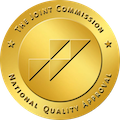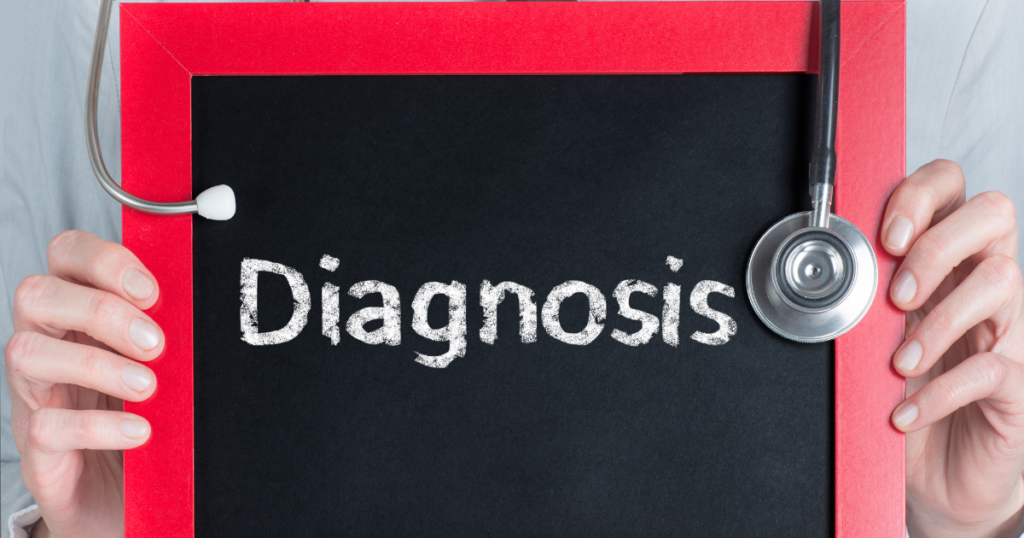Updated: May 30, 2023, at 4:30 p.m.
Americans struggling with mental health illness are more likely to struggle with drug or alcohol addiction. A study published in The Journal of The World Psychiatric Association (WPA) found that over 50% of adults live with mental illness and co-occurring substance use disorders (SUD). This combination of health challenges can negatively impact their mental and physical state and chances of successful recovery outcomes, like:
- Reduced substance use behaviors
- Improved mental health symptoms
- Better overall physical health
- Improved relationships with family and friends
- Increased ability to function in work, school or other areas of life
- Increased feelings of self-worth and self-esteem
This page explores the complex relationship between substance abuse and mental health. We’ll dive into the research on topics such as:
- Dual diagnosis
- Anxiety
- Depression
We’ll also cover real-world experiences and proven treatment options that can help you or someone you care about overcome these health challenges and regain control. As you read along, you’ll be better equipped to make informed decisions and take the necessary steps toward choosing lasting addiction recovery and renewed hope.
What Is the Difference Between Dual Diagnosis and Co-Occurring Disorders?
People who experience substance abuse and mental health issues may be diagnosed with either dual diagnosis or co-occurring disorders. Understanding the difference between the two is crucial for accurate diagnosis and effective treatment.
What is A Dual Diagnosis?
Dual diagnosis refers to when a person has a mental health disorder and a substance use disorder (SUD) at the same time. This is also known as comorbidity, where the two conditions need their own specific treatments. Healthcare professionals can’t just treat one of the problems and ignore the other.
They must accurately diagnose both conditions and create a personalized treatment plan that addresses the mental health condition and substance use problem. That way, the person can get the help they need to overcome and live a healthier life.
What Are Co-Occurring Disorders?
Co-occurring disorders mean that a person is dealing with both a drug or alcohol problem and a mental health issue. Unlike a dual diagnosis, however, these problems are related and need to be treated together. This happens a lot when someone is using drugs or alcohol to try and feel better because they are struggling with mental health issues like anxiety or depression. Therefore, both problems need to be addressed at the same time to help the person have a successful recovery journey.
Exploring Dual Diagnosis and Co-Occurring Disorder Health Challenges
It can be challenging for doctors to tell if someone has both a mental health and substance use problem at the same time. Drugs and alcohol can mask or worsen underlying mental health conditions, making it difficult to determine if one is causing the other. Therefore, accurate diagnosis is critical for successful treatment outcomes.
If you or someone you know is struggling with both mental health and substance use, you’re not alone.
According to the 2021 National Survey on Drug Use and Health (NSDUH):
- Over 13% of young adults aged 18 to 25 had both a substance use disorder (SUD) and any mental illness in the past year.
- Nearly 33% of adults had either a SUD or any mental illness in the past year.
- 46% of young adults aged 18-25 had either a substance use disorder or any mental illness.
- Despite having the highest rate of serious mental illness, people aged 18 to 25 had the lowest rate of treatment in comparison to adults in other age groups.
These findings highlight the importance of seeking professional help for successful treatment outcomes. If you or a loved one is dealing with co-occurring disorders, it’s important to consult with a professional for guidance and support. Resources like the 988 Suicide & Crisis Lifeline provide immediate support for those struggling with thoughts of self-harm. Addiction treatment centers also offer integrated treatment approaches that address both substance abuse and mental health disorders at the same time.
How Are Anxiety, Depression, and Substance Abuse Related?
Anxiety and depression are two of the most common mental health illnesses in the United States. They affect millions of people each year, and unfortunately, many of those people turn to substance abuse as a way to cope with their symptoms. According to the Columbia University Mailman School of Public Health, nearly one in 10 Americans aged 12 or older experienced depression, or a past-year major depressive episode in 2020.
Additionally, the National Institutes of Health (NIH) found that over 31% of U.S. adults experience any anxiety disorder at some point in their lives. That includes:
- Generalized anxiety disorder (GAD)
- Panic disorder
- Social anxiety disorder (SAD)
- Phobia-related disorders
Anxiety and depression can interfere with daily activities like:
- Job performance
- School work
- Relationships
How Can Anxiety And Depression Lead To Substance Abuse?
Many people use drugs and alcohol as a way to self-medicate and temporarily relieve undiagnosed mental health disorders. While substance use may seem like a quick fix to anxiety disorders or depression, it can make a person’s symptoms worse in the long run. This is because drugs and alcohol can disrupt the brain’s chemical balance. Depending on the drug, a person could experience:
- Mood changes
- Increased anxiety
- Depression
- Paranoia
- Memory problems
Regular substance use can also quickly spiral out of control. Over time, a person might need more of a drug or alcohol to make their symptoms go away. Moreover, when a mental health illness goes untreated, the substance abuse problem usually gets worse. This is ultimately what causes people to struggle with co-occurring disorders or dual diagnoses.
What’s the Difference Between Substance Use Disorder (SUD) and Substance Abuse?
Substance use disorder (SUD) and substance abuse are similar terms with different meanings. If you or someone you know struggles with drugs or alcohol, knowing the difference can help you:
- Avoid negative physical and mental health consequences
- Seek appropriate treatment
- Start your addiction recovery journey
First, let’s take a closer look at what these terms really mean.
What is Substance Abuse?
According to the American Psychological Association (APA), substance abuse is:
“A pattern of compulsive substance use marked by recurrent significant social, occupational, legal, or interpersonal adverse consequences, such as repeated absences from work or school, arrests, and marital difficulties.”
Simply put, substance abuse is when a person repeatedly and excessively uses drugs or alcohol, causing negative effects on their personal and professional life. These negative effects may include:
- Trouble with family and friends
- Difficulty keeping a job or attending school
- Legal issues
- Other problems
To destigmatize the pattern of compulsive drug or alcohol use, some people use the term substance “misuse.”
Substance abuse can take different forms, such as:
- Binge drinking
- Recreational drug use for fun
- Non-medical use of prescription or OTC drugs
If not treated, it can lead to a more serious medical condition called substance use disorder (SUD).
What is Substance Use Disorder (SUD)?
A substance use disorder is a chronic, relapsing disease that affects the brain’s reward, motivation and related systems.
SAMHSA says SUDs occur:
“When the recurrent use of alcohol and/or drugs causes clinically significant impairment, including health problems, disability, and failure to meet major responsibilities at work, school, or home.”
When a person uses drugs or alcohol, it can trigger the release of dopamine, a neurotransmitter that’s responsible for feelings of pleasure and reward. With regular or repeated use, the brain can become dependent on these substances to release dopamine, leading to cravings and withdrawal symptoms when the person tries to stop using.
Additionally, SUDs can impact a person’s physical and mental health, as well as their relationships with family and friends. If left untreated, SUDs can lead to long-term health consequences and even death. However, with appropriate treatment, including medication-assisted therapy and behavioral therapies, recovery is possible. It’s important to seek help as soon as possible if you or someone you know is struggling with a SUD.
How Can Substance Abuse Lead To Substance Use Disorder?
Substance abuse can lead to substance use disorder and cause long-term negative health consequences if it’s not addressed early on. The long-term health consequences can vary depending on the type and amount of substance use, as well as the duration of use. For example, heavy alcohol use can lead to:
- Liver disease
- High blood pressure
- Heart disease
- Increased risk of certain cancers
Long-term opioid use can lead to:
- Respiratory depression
- Seizures
- A higher risk of overdose death
Why is Early Intervention and Treatment Important?
Early intervention and treatment are critical to helping people prevent substance abuse from progressing into substance use disorder or co-occurring mental health disorders. Research has shown that SUD is a complex condition that can have genetic and environmental factors. Some people may be at higher risk of developing substance use disorder due to family history, mental illness, or stressful life events.
What Is The Most Effective Treatment For Dual Diagnosis?
The federal government removed the DATA-X waiver requirement for physicians, making it easier for them to prescribe FDA-approved medications to treat SUDs and co-occurring disorders or dual diagnoses. This is good news, as medications like buprenorphine have been called the “gold standard” for treating opioid addiction. SAMHSA recommends a variety of evidence-based treatments to help people overcome SUD and choose recovery, including:
- Cognitive Behavioral Therapy (CBT)
- Motivational Interviewing (MI)
- Medication-Assisted Treatment (MAT)
According to mental health advocate Karl Shallowhorn, motivational interviewing (MI) is a powerful approach to treating co-occurring disorders. He explains, “In motivational interviewing… the client feels like I’m getting to a place where I’m going from ‘I think I need to make a change’ to ‘I know I can make a change’.” MI involves:
- Erasing ambivalence
- Guiding people through the change process
- Empowering them to take action
To learn more about the effectiveness of motivational interviewing in treating co-occurring disorders, listen to the full podcast episode featuring Shallowhorn.
Early intervention and effective treatments can help people recover from substance abuse and avoid harmful effects, including those on mental health.
Should Mental Health and Substance Abuse be Treated Together?
Treating mental health and substance abuse together can lead to better outcomes for individuals with co-occurring conditions. Integrated treatment, which combines medication and behavioral therapies, has been found to be more effective than separate treatments in reducing substance use and improving mental health. Unfortunately, stigma and limited resources can make accessing this type of care challenging.
However, there are successful treatment models like SAMHSA’s “Recovery-Oriented Systems of Care” (ROSC) that prioritize a person’s recovery journey and have shown improved outcomes for those with co-occurring conditions.
What’s the Most Effective Treatment for Substance Use Disorder (SUD)?
The most effective treatment for substance use disorder (SUD) depends on the specific substance and its impact on a person’s life. Treatment is usually tailored to match the severity of the addiction and can include:
- FDA-approved medications
- Behavioral therapies
- Continued care
A “patient-centric,” integrated approach, where the treatment is personalized and comprehensive, provides people with the necessary tools and support to overcome addiction and achieve long-term recovery.
What’s the Best Psychological Treatment for Addiction?
The best psychological treatment for addiction varies based on individual circumstances, such as:
- The type and severity of substance use
- Co-occurring mental health conditions
- Personal preferences
- Resource availability
Considering these factors allows for a customized and effective addiction treatment plan that addresses each person’s unique needs in their journey toward recovery.
Get Help Today for Substance Abuse and Mental Health Concerns
If you or a loved one is struggling with substance abuse and mental health issues, know that you’re not alone. These conditions are complex, but seeking help is a brave first step toward achieving your wildest dreams. By understanding the connection between substance abuse and mental health, and the importance of early intervention and effective treatment, you can make informed decisions about your health and wellness.
At Landmark Recovery, we understand the challenges that come with co-occurring disorders and substance use disorders. Our team of professionals is ready to help you develop the confidence to choose recovery over addiction. We offer evidence-based treatments and support to help you achieve your goals.
Don’t wait to get the help you need. Call 888-448-0302 for confidential, 24/7 assistance. We also have a blog section with helpful content to support you every step of the way.





















